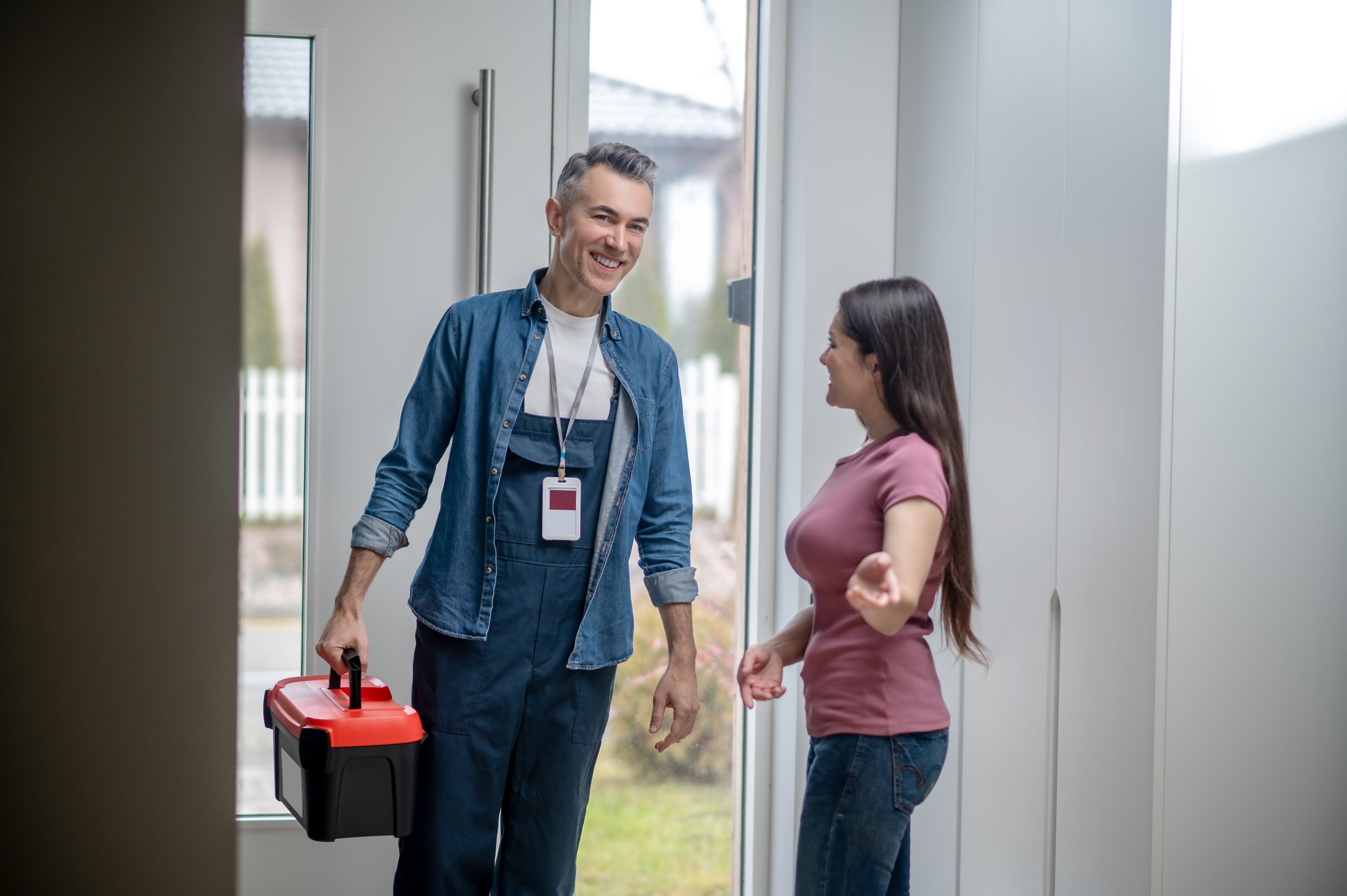So you’ve found your dream home and you’re ready to make an offer! That’s exciting. But before you sign on the dotted line, it’s crucial to get a professional home inspection to look for any potential issues with the property.
A home inspection can give you peace of mind that you’re not buying a money pit. Or it can uncover problems that let you re-negotiate with the seller. Either way, you’ll avoid nasty surprises down the road.
In this post, we’ll go over everything you need to know to get the most out of your home inspection. Let’s dive in!
Choosing the Right Home Inspector
This is one of the most important decisions you’ll make in the home buying process. A thorough inspection from a qualified professional can potentially save you thousands in unforeseen repairs and expenses.
Here are a few tips for choosing the best home inspector:
- Look for licenses and certifications. In most states, home inspectors are required to be licensed. Additionally, many belong to professional organizations that provide certifications, like the American Society of Home Inspectors (ASHI) or the National Association of Home Inspectors (NAHI).
- Ask for references from past clients. Any reputable home inspector should be happy to provide references from past clients. Follow up with a few people to ask about their experience.
- Read online reviews. Check sites like Yelp and Google to see what other people have said about inspectors in your area. Look for reviewers who seem detailed in their assessments.
- Consider specialties. Some inspectors specialize in certain types of homes or components. This can be helpful if you’re looking at a particularly old home or one with unique elements like solar panels.
- Compare multiple quotes. Prices can vary widely, so get estimates from a few different inspectors before deciding. Make sure you’re comparing apples to apples in terms of what’s included.
What to Expect During the Inspection
A standard professional home inspection usually takes 2-3 hours to complete. The inspector will come to the property and do a visual examination of the exterior, interior, roof, plumbing, electrical systems, and more.
You generally will not need to be at the home for the inspection. In fact, it’s better if you aren’t, so you don’t influence the inspector’s impartial evaluation.
The inspector will bring specialized tools and testing equipment to look for issues. For example, they’ll use a moisture meter to check for water damage behind walls, or an outlet tester to make sure electrical circuits are wired properly.
At the end, you should get a detailed written report of the inspector’s findings, including any defects that need repair. They’ll also go over major concerns with you in person after the inspection.
What’s Inspected During a Professional Home Inspection?
To give you the full picture about a home’s condition, a standard inspection covers quite a bit of ground. Here are some of the major systems and areas included:
Exterior
- Roof and gutters
- Siding, trim, and paint
- Windows and doors
- Foundation and structure
- Porches, decks, and patios
- Grading and drainage
- Driveways and walkways
Interior
- Walls, ceilings, and floors
- Doors and windows
- Steps, railings, and balconies
- Countertops and cabinets
- Plumbing and sinks
- Electrical and lighting -HVAC system
- Laundry and appliances
- Fireplace and chimney
- Garage and insulation
What About Pests, Mold, Radon, and More?
A general home inspection does NOT include testing for:
- Pests: That requires a separate pest inspection by a qualified exterminator. They’ll check for signs of termites, carpenter ants, cockroaches, etc.
- Mold: A mold inspection needs an environmental hygienist to take air samples and swabs. They can test for dangerous types like black mold.
- Radon: You need a radon test to check the air for this radioactive gas that can seep in from the ground. Long-term exposure is hazardous.
- Lead: To check for lead paint, which can be toxic, especially for kids, you’ll need a lead inspection and risk assessment.
- Asbestos: A special asbestos inspection is needed to sample materials that may contain these dangerous fibers.
- Septic system: For rural properties, you’ll want a septic inspection to ensure the underground system is working properly.
- Water quality: It’s smart to test well water for contaminants like bacteria, heavy metals, and pesticides before buying a home.
Most inspectors can do these additional tests for an extra fee. Or they can refer certified pros who specialize in each area.
Key Systems and Areas to Focus On
While home inspectors check over the entire property, there are some systems and areas that can be especially prone to issues. Make sure you pay close attention to the inspector’s findings on:
Roof
This protects your entire investment from the elements. Old, damaged roofs can allow costly leaks. Inspectors will check:
- Age, material, and expected lifespan
- Signs of wear like cracked or missing shingles
- Sagging or deformities indicating structural issues
- Exposed nails that can lead to leaks
- Flashing around joints and valleys
- Gutters and drainage for blockages
Foundation
Foundations keep the entire structure stable. Cracks or shifting can destabilize walls and floors. Inspectors will look for:
- Cracks in foundation walls or floors
- Signs of level changes like doors not closing properly
- Mold, efflorescence (white powder), or water stains
- Improper grading causing water to pool near the foundation
Electrical
Outdated wiring or undersized panels can cause fires or shock hazards. Inspectors test:
- Condition of the electrical panel and wiring
- Grounding and if circuits are overloaded
- Function of outlets, switches and fixtures
- Operation of doorbells, smoke detectors, and carbon monoxide detectors
Plumbing
Leaks or burst pipes can destroy walls and possessions. Inspectors check:
- Condition of supply pipes, drain pipes, and vent pipes
- Water pressure and signs of leaks
- Function of fixtures like toilets, faucets, showerheads, water heater, and sump pump
- For proper installation with adequate slopes and support
HVAC
Faulty heating/cooling systems can fail or even release carbon monoxide. Inspectors look at:
- Age, capacity, and type of HVAC systems
- Condition of air handler, distribution, registers, and filters
- Signs of loose connections or corrosion
- Proper ventilation to exterior
- Function of thermostats and controls
By understanding what a professional home inspection covers and what to focus on, you can make the most out of this important process. Don’t let small issues turn into huge headaches—get your dream home thoroughly checked before move-in day!
What to Do After the Inspection Report
You did it! Now you have a detailed professional home inspection report in hand. Here’s how to move forward:
Review the Report Thoroughly
Carefully read the entire report and make note of any deficiencies. If anything is unclear, contact the inspector for clarification right away. You can also ask them to expand on any areas of particular concern.
Get Contractors’ Opinions
For any issues requiring repair, have qualified contractors review the report and provide written estimates for the work. This will reveal the true costs to fix problems.
Request Repairs or Credits from Seller
Use the inspection findings to negotiate with the seller for credits or to have repairs made before closing. Be reasonable but firm on addressing serious safety issues.
Analyze the Full Picture
Take time to carefully consider all available information about the home’s condition before making a final decision about moving forward with the purchase.
Keep the Report for Future Reference
Hold on to the inspection report as a useful reference documenting the home’s condition at the time you purchased it. Review it again when planning future maintenance.
While a home inspection may uncover unexpected issues, those insights give you power to make the best decision and budget for necessary repairs. Ultimately, the peace of mind is priceless.
So there you have it—a comprehensive guide to getting the most out of a professional home inspection when buying a home. Follow these tips and you can approach the process with confidence and avoid unwelcome surprises down the road. Happy house hunting!







